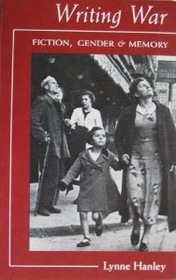Search -
Writing War: Fiction, Gender, and Memory
Writing War Fiction Gender and Memory
Author:
Hanley's text, which intertwines fiction, memoir, and literary criticism, examines women's war stories. She argues that fiction organizes, shapes, and ultimately creates perception, stating in her introduction that, "our fictions have power, they shape our memories of the past and they create memories of pasts we have never had, of ... more »
Author:
Hanley's text, which intertwines fiction, memoir, and literary criticism, examines women's war stories. She argues that fiction organizes, shapes, and ultimately creates perception, stating in her introduction that, "our fictions have power, they shape our memories of the past and they create memories of pasts we have never had, of ... more »
ISBN-13: 9780870237485
ISBN-10: 0870237489
Publication Date: 5/1991
Pages: 168
Rating: ?
ISBN-10: 0870237489
Publication Date: 5/1991
Pages: 168
Rating: ?
0 stars, based on 0 rating
Publisher: University of Massachusetts Press
Book Type: Paperback
Other Versions: Hardcover
Members Wishing: 0
Reviews: Amazon | Write a Review
Book Type: Paperback
Other Versions: Hardcover
Members Wishing: 0
Reviews: Amazon | Write a Review
Genres:
- History >> Military >> General
- Literature & Fiction >> General
- Literature & Fiction >> History & Criticism >> Criticism & Theory >> General
- Literature & Fiction >> World Literature >> United States >> Classics >> General
- Literature & Fiction >> British & Irish >> 20th Century
- Nonfiction >> Women's Studies >> Feminist Theory




